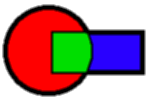 | Domain Decomposition Methods  
| last update: 2021-10-01 |
[ Lecture ] [ exam questions ] [ Exam Dates ] [ Transparencies ] [ Lecture Notes ] [ Software ] [ General ] [ Home ]
(CourseId 327.024, 2 hours per week, Semester 8)
Lecturer: O.Univ.-Prof. Dr. Ulrich Langer
Time and room:
| Monday, March 02, 2015 | 15:30 - 17:00 Room: BA 9908 | Lecture 01 |
| Monday, March 09, 2015 | 15:30 - 17:00 Room: BA 9908 | Lecture 02 |
| Monday, March 16, 2015 | Canceled ! | |
| Monday, March 23, 2015 | 15:30 - 17:00 Room: BA 9908 | Lecture 03 |
| Tuesday, March 24, 2015 | 15:30 - 17:00 Room: S2 059 | Lecture 04 |
| Easter Break | ||
| Monday, April 13, 2015 | Canceled ! | |
| Monday, April 20, 2015 | 15:30 - 17:00 Room: BA 9908 | Lecture 05 |
| Tuesday, April 21, 2015 | 15:30 - 17:00 Room: S2 059 | Lecture 06 |
| Monday, June 29, 2015 | 15:30 - 17:00 Room: BA 9908 | Lecture 07 |
| Tuesday, June 30, 2015 | 13:45 - 15:15 Room: S2 416 | Lecture 08 |
| Monday, July 6, 2015 | 13:45 - 15:15 Room: BA 9907 | Lecture 09 |
| Tuesday, July 7, 2015 | 13:45 - 15:15 Room: BA 9907 | Lecture 10 |
| Thursday, July 9, 2015 | 10:15 - 11:45 Room: BA 9907 | Lecture 11 |
| Thursday, July 9, 2015 | 13:45 - 15:15 Room: BA 9907 | Lecture 12 |
| Friday, July 10, 2015 | 10:15 - 11:45 Room: BA 9907 | Lecture 13 |
| Exam Questions: | up |
| Exam Dates: | up |
up
| Transparency 1: colour | H.A. Schwarz, 1869: AltSM |
| Transparency 2: colour | S.L. Sobolev, 1936: VF AltSM |
| Transparency 3: colour | Iterative Substructuring |
| Transparency 4: colour | 2.3. Overlappping and Non-overlapping DDMs |
| Transparency 5: colour | Algorithm 3.1. ASM |
| Transparency 6: colour | Algorithm 3.2. MSM |
| Transparency 7: colour | Algorithm 3.3. A Hybrid Schwarz Method |
| Transparency 8: colour | Illustration ASM and MSM |
| Transparency 9: colour | Theorem 3.23: Proof (1) |
| Transparency 10: colour | Theorem 3.23: Proof (2) |
| Transparency 11: colour | Theorem 3.23: Proof (3) |
| Transparency 12: colour | Theorem 3.23: Proof (4) |
| Transparency 13: colour | Summary: Multilevel ASM |
| Transparency 14: colour | Ex. 4.1, Rem. 4.6 |
| Transparency 15: colour | 5.1.2.: TypeI: overlapping |
| Transparency 16: colour | 5.1.2.: TypeII: distributed |
| Transparency 17: colour | DD Par(P)GG |
| Transparency 18: colour | Convergence, Communication |
| Transparency 19: colour | DD preconditioner |
| Transparency 20: colour | Lemma 5.4 + Proof |
| Transparency 21: colour | Proof (cont.) |
| Appendix A1: colour |
see http://www.numa.uni-linz.ac.at/Teaching/Notes/
up DD Monographs:
[1] Korneev V.G. and Langer U. Dirichlet-Dirichlet Domain Decomposition Methods for Elliptic Problems: h and hp Finite Element Discretizations. World Scientific Publishing Company Incorporated, New Jersey - London - Singapore, 2015.
[2] Mathew, T. (2008). Domain Decomposition Methods for the Numerical Solution of Partial Differential Equations, Lecture Notes in Computational Science and Engineering, Vol. 61 (Springer, Berlin - Heidelberg).
[3] Pechstein, C. (2013). Finite and Boundary Element Tearing and Interconnecting Solvers for Multiscale Problems, Lecture Notes in Computational Science and Engineering, Vol. 90 (Springer, Berlin-Heidelberg).
[4] Quarteroni, A. and Vali, A. (1999). Domain Decomposition Methods for Partial Differential Equations (Oxfort Sciences Publications).
[5] Smith B, Bjørstad P and Gropp W. Domain Decomposition: Parallel Multilevel Methods for Elliptic Partial Differential Equations. Cambridge University Press, 1996.
[6] Toselli, A. and Widlund, O. (2005). Domain Decoposition Methods - Algo- rithms and Theory, Springer Series in Computational Mathematics, Vol. 34 (Springer, Berlin, Heidelberg).
 |
 |
DD Survey Articles:
[1] Korneev, V. and Langer, U. (2004). Domain decomposition and preconditioning, in E. Stein, R. de Borst and T. Hughes (eds.), Encyclopedia of Computa- tional Mechanics. Vol 1 : Fundamentals, Chapter 22, Vol. 1 (John Wiley & Sons), pp. 617–647.
up up
- Domain Decomposition Methods - official page: http://www.ddm.org/
up
Previous Knowledge:
- Linear Algebra and Analytic Geometry 1 and 2
- Knowledge of Computer Science and Programming
- Numerical Analysis
- Partial Differential Equations and Integral Equations
- Modelling
- Numerical Methods for Partial Differential Equations
Is required for:
- Special Topics in Computational Mathematics
- Special Seminars in Computational Mathematics
Objective:
Get knowledge of Domain Decomposition Methods that are the most efficient methods for the parallel numerical solution of Partial Differential Equations and that are the most important tolls for the numerical treatment of multiphysics problems.
Contents:
- Introduction
- DD History
- The Schwarz Machinery
- Overlapping DDMs
- Non-overlapping DDMs
Examinations:
oral

